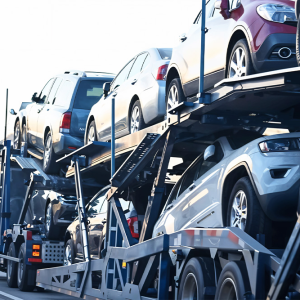As millions of pilgrims stand on Mount Arafah in Saudi Arabia to mark the holiest day in Islam, UAE residents join in with fasting, prayer, and reflection. Known as the Day of Arafah, this sacred moment in the Islamic calendar represents a time of deep spiritual importance for Muslims around the world.
The convergence of local devotion and global pilgrimage highlights how Islamic values of unity and worship transcend geographical boundaries.
What Is the Holiest Day in Islam?
The holiest day in Islam, known as the Day of Arafah, takes place on the 9th day of Dhul Hijjah — the final month in the Islamic lunar calendar. It falls just one day before Eid Al Adha, the Festival of Sacrifice.

On this day, Hajj pilgrims gather at Mount Arafah, located around 20 kilometers from Mecca, to perform what is considered the most crucial ritual of the pilgrimage — standing (wuqoof) before God. The Prophet Muhammad is said to have delivered his final sermon here over 1,400 years ago.
Muslims believe that sins are forgiven, prayers are accepted, and spiritual rewards are multiplied on this special day.

How UAE Residents Observe the Day
Even though most Muslims in the UAE are not performing Hajj, they participate in the significance of the day through:
- Voluntary fasting
- Offering extra prayers
- Reading and listening to Quranic recitations
- Giving charity and performing good deeds
Many UAE mosques hold special sermons and community events to honor the day. Spiritual messages are also shared through television, radio, and online platforms to help residents reflect from home.
The Power of Fasting on the Day of Arafah
Fasting on the holiest day in Islam holds immense reward for non-pilgrims. According to Hadith (teachings of the Prophet), fasting on this day is believed to erase sins from the previous year and the year to come.
Residents across Abu Dhabi, Dubai, Sharjah, and other emirates rise early to begin their fast before the Fajr (dawn) prayer and break it at sunset, just as they would during Ramadan.
Many families use the time to engage in quiet reflection, gratitude, and acts of service — whether by preparing meals for neighbors or donating to those in need.
Emotional Connection with Pilgrims on Mount Arafah
UAE residents often say they feel spiritually connected to those on pilgrimage, even from hundreds of kilometers away.
Social media and news coverage allow people to witness the awe-inspiring scenes on Mount Arafah — seas of white garments, pilgrims standing shoulder to shoulder in prayer under the hot sun, and the emotional intensity of worshippers seeking forgiveness.
“I couldn’t go for Hajj this year, but when I fast and watch the pilgrims live from Arafah, it feels like I am spiritually there with them,” says Fatima Mahmoud, a Dubai resident.
Mosques and Media Amplify the Message

Mosques across the UAE offer live streaming of sermons and special programs focused on the meaning of Arafah and the value of patience, sacrifice, and submission to God.
Religious scholars appear on national media channels to explain how residents can gain the most from the day — even if they are not among the Hajj pilgrims.
Some key takeaways shared by local imams include:
- Ask for forgiveness sincerely and repeatedly
- Perform Dhikr (remembrance of God) throughout the day
- Avoid arguments or distractions that take away from spiritual focus
Arafah Ritual: The Heart of the Hajj Pilgrimage
The Day of Arafah marks the spiritual climax of Hajj. Pilgrims must gather between noon and sunset at the plains of Arafah and stand in prayer. Without this act, the pilgrimage is considered invalid.
The mountain and surrounding plains are filled with prayer mats, umbrellas, and tears as pilgrims pray in unison, ask for forgiveness, and recite verses from the Quran.
Once the sun sets, pilgrims leave for Muzdalifah, where they spend the night under the open sky, collecting stones for the symbolic stoning of the devil — a ritual that takes place in the days following Arafah.
A Time for Forgiveness and Mercy
The spiritual message of the holiest day in Islam is clear: mercy, forgiveness, and renewal. Muslims believe this is one of the best days to make personal du’a (supplication) — asking God for health, happiness, forgiveness, and strength for the year ahead.
Many families in the UAE use this opportunity to pray together and speak about personal goals and resolutions, similar to the New Year’s reflection in other cultures.
Bringing the Spirit of Hajj into UAE Homes
Though only a small percentage of Muslims are able to perform Hajj each year, the Day of Arafah makes the experience accessible to everyone through shared rituals.
UAE residents often decorate their homes with Islamic calligraphy, serve special meals at iftar (evening meal), and send text messages or voice notes with prayers to family and friends.
Some also visit the sick, make peace with estranged loved ones, or donate to charitable causes — bringing the values of Hajj into their daily lives.
Global Unity Through Worship

What makes the holiest day in Islam so powerful is its global reach. Muslims in every country — whether in Saudi Arabia or the UAE, India or Indonesia — are united in their prayers, fasts, and supplications.
The moment offers a reminder that, despite cultural and language differences, the Muslim ummah (community) remains spiritually connected.
Looking Ahead to Eid Al Adha
As the sun sets on the Day of Arafah, the anticipation for Eid Al Adha begins. The next day marks the start of the three-day festival, during which Muslims perform the ritual of animal sacrifice, distribute meat to the needy, and celebrate with family and friends.
In the UAE, preparations for Eid are in full swing with shopping, travel plans, and community events expected to draw large crowds.
Final Thoughts
The holiest day in Islam offers a time of reflection, unity, and devotion for Muslims across the UAE and the world. Whether standing on Mount Arafah or fasting in an apartment in Sharjah, believers are united by a shared goal — to seek closeness to God.
It’s a reminder that spiritual renewal is not bound by place but by intention — and that one day can transform hearts, minds, and lives for the better.
Read More: Eid Al Adha 2025 Park Timings Announced for Dubai Residents












